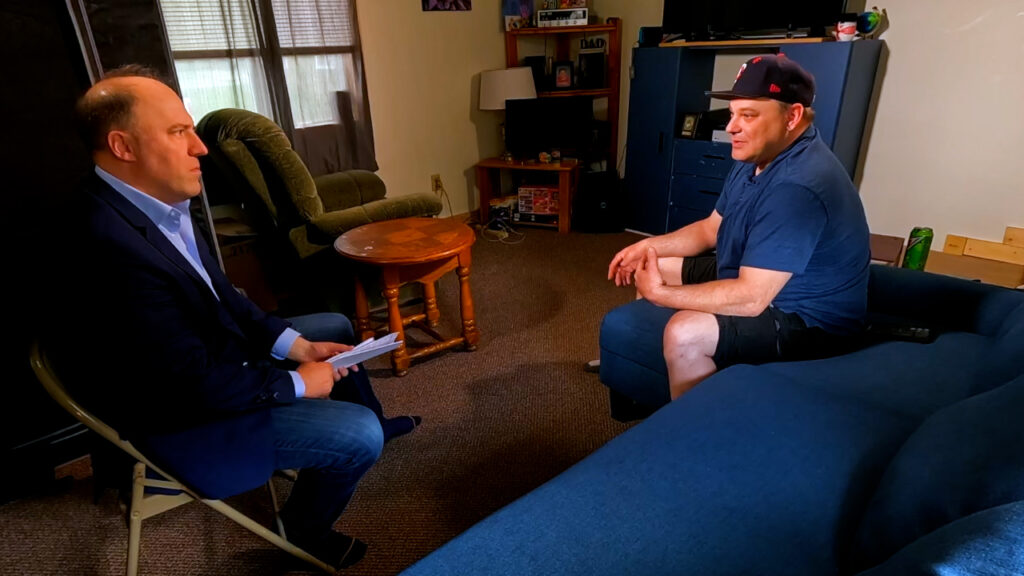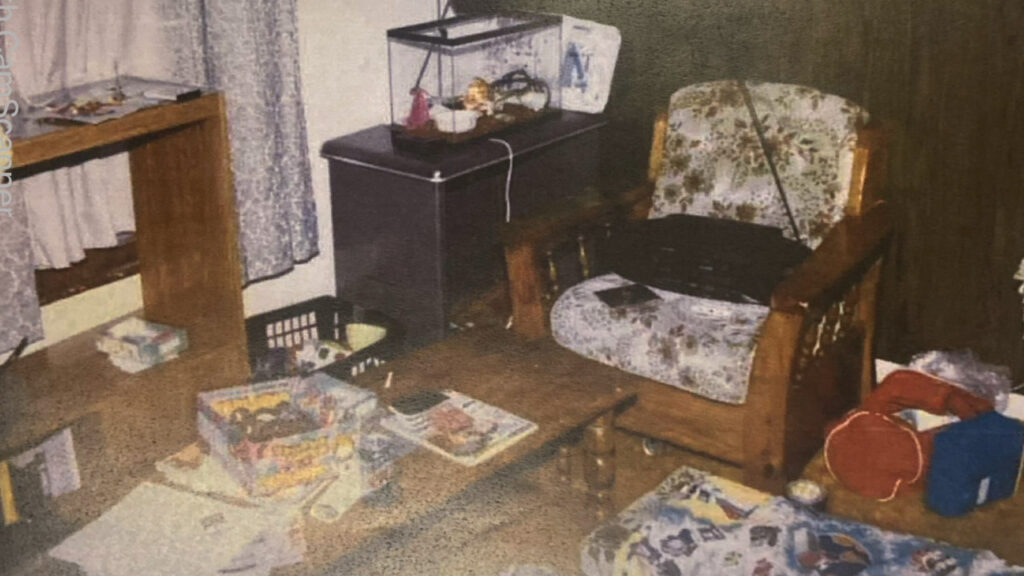A survivor’s story: Old wounds, new questions about unreturned property
Bob Selbitschka might remember May 20, 1996 more vividly than any other day of his life.
He was 17 years old and was getting ready to start a summer job at Valleyfair the next week when he got a late night phone call from his friend, Tabitha Juetten, asking him to come to her home on First Street in Little Falls.
Tabitha was 19, pregnant, and fearful that her estranged husband, Robert Juetten, who just got out of jail, might return to the house despite an active order for protection against him.
“We stayed up until like 3:30 a.m.,” Selbitschka said. “I didn’t want to go to sleep… I was scared.”
Those fears were realized only hours later when Robert Juetten broke in, stabbing both Bob and Tabitha while they were sleeping in separate rooms.
“I didn’t even know he stabbed me, it happened so fast,” Selbitschka said.
A nearly seven-hour standoff with police ensued, as Juetten held Bob and Tabitha hostage.
“I looked over at him and he looked like he was possessed,” Selbitschka said.
Juetten allowed Bob to go after hours of negotiations. Bob was able to crawl to an ambulance that rushed him to the hospital with a life-threatening stab wound to his leg.
Tabitha and her unborn baby did not survive.
Robert Juetten was eventually arrested, charged and convicted of murder and kidnapping.
Nearly 30 years later, Bob Selbitschka said authorities never returned his property that he was forced to leave behind at the crime scene. He contacted 5 INVESTIGATES to share his story for the first time, in hopes of finding a resolution.
“Evidence” not returned
Selbitschka says he and his mother first asked about getting his property back while he was still at a local hospital being treated for the stab wound to his leg.
“I had an ID, I had my social security card,” Selbitschka said about the property left behind at the house on First Street. “I just wanted my things back.”
But like everything else at the crime scene, Selbitschka says authorities told his mother it was all evidence in their criminal case against Robert Juetten.
When Selbitschka’s mother contacted the Social Security Administration about a replacement card for her son, he says they encountered another roadblock.
“They asked, ‘What happened to it?’” Selbitschka said. “My mom was like, ‘They said it’s evidence in this case.’ Then they said, ‘Well, you need to go get that back.’”

But Selbitschka says investigators never returned his property – an oversight that continued to cause problems for him into adulthood when he applied for jobs.
“They asked me for my ID and then they asked me for my social security card,” Selbitschka said. “When I told them, ‘I don’t have one’ and they asked me why… that’s always a complicated story.”
A familiar story
Selbitschka says he had long since given up hope of getting his property back when reporting by 5 INVESTIGATES caught his attention earlier this year.
George Floyd was borrowing Sylvia Jackson’s SUV at the time he was killed by Minneapolis police in 2020, but state investigators continued to hold the vehicle as evidence in the case after the trials of all four officers had ended and their appeals had been exhausted.
In April, the Minnesota Attorney General’s Office ordered that Jackson’s car should be returned to her, but only after 5 INVESTIGATES started asking questions.
“It really did sound familiar,” Selbitschka said. “Just knowing that there are other people out there struggling to get their things back, that made me think – could I still get my stuff back too?”
Selbitschka asked that same question when Robert Juetten’s life sentence recently came up for review at the Minnesota Department of Corrections.
Liz Richard’s team with the DOC’s office of Victim Services and Restorative Justice offered to help.
“We do have a number of cases, when we get to the parole review hearings, and we hear that family members have never been able to secure their property back,” Richards said.
Emails show DOC staff attempted to connect Selbitschka with other advocates and relayed questions about this property to the Morrison County Sheriff’s Office.
“We were able to at least talk to some of the local authorities, have them go back, look through the archives,” Richards said. “The answer was they no longer have the property.”
Getting answers
Morrison County Sheriff Shawn Larsen declined interview requests from 5 INVESTIGATES, but in a statement said he reviewed more than “1,000 plus pages of reports” in the case and determined there was “no record” that his agency ever seized Bob Selbitschka’s wallet.
Larsen added that some of Selbitschka’s clothing was “shipped off to the BCA,” but a spokesperson for the Minnesota Bureau of Criminal Apprehension told 5 INVESTIGATES that the same evidence bag was later returned to Morrison County in October 1996.
The Sheriff’s Office granted 5 INVESTIGATES access to review the case file which included dozens of never-before-seen photos of the crime scene.

Selbitschka believes a photo of the living room where he was stabbed shows an item on a coffee table that could be his wallet, but he now accepts that he may never know for sure what happened to it.
“My thoughts on it? It’s just some shoddy work, you know what I mean?” Selbitschka said. “They just didn’t really do anything with it. They didn’t really pay attention to what they did with it.”
But his decision to finally speak about the ordeal was not in vain.
After 5 INVESTIGATES started asking questions about Selbitschka’s story, he says he started getting help that had not been available before, including treatment for nerve damage in his leg.
And with confirmation that his Social Security card is officially “lost,” Selbitschka finally received a replacement.
He says he hopes his story might also lead to the kind of lasting assistance for young victims of violent crime that could have helped him when he was struggling to come to terms with the trauma he suffered as a teenager.
“I hope they are a little bit more compassionate,” Selbitschka said. “Listen to some of these victims.”
Robert Juetten continues to serve a life sentence. His next review before the DOC’s Supervised Release Board is scheduled for June 2026.